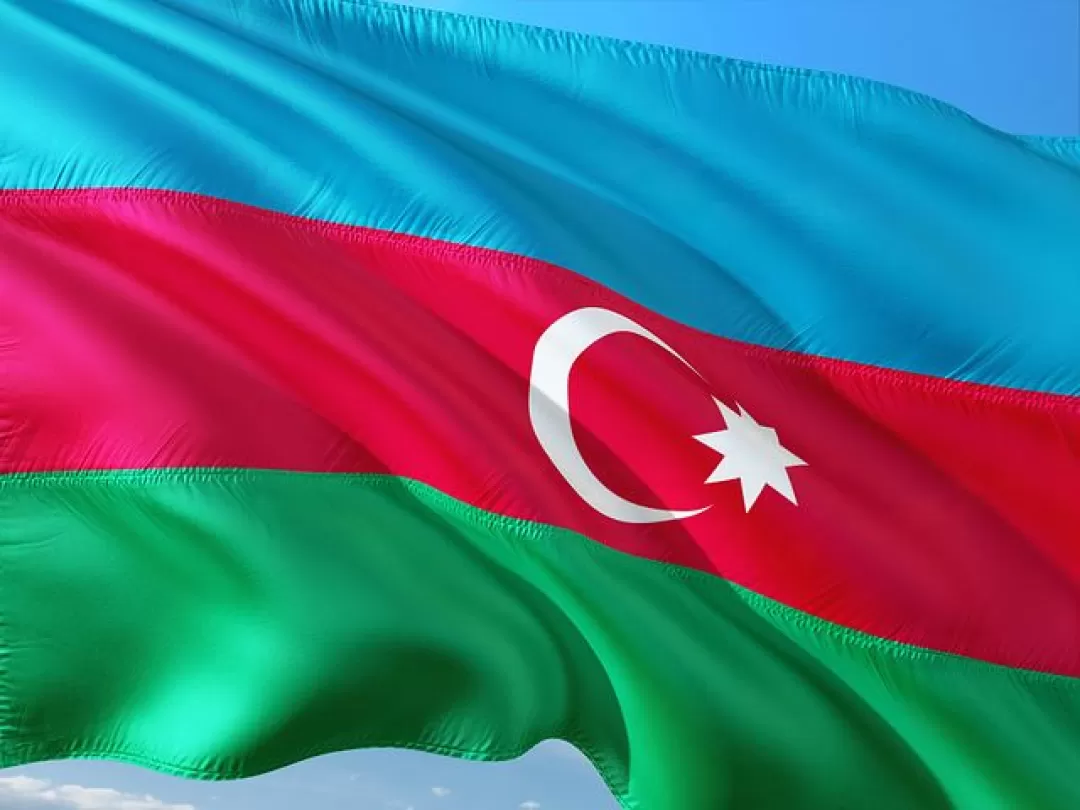
Azerbaijan eyes cultural cooperation with UK, energy collaboration with South Korea and transport cooperation with Kazakhstan

Culture Ministry of Azerbaijan and UK eye cooperation
Lord Malcolm Bruce, Lord Donald Hankey, and Oxford University lecturer Dr Julian Faultless, members of the House of Lords of the British Parliament, met with Azerbaijani Culture Minister Anar Karimov.
The two parties explored the possibility of Azerbaijan and the British government cooperating. International initiatives and restoration work in Nagorno-Karabakh, as well as large-scale building activity in Azerbaijan to rebuild devastated architectural landmarks and Muslim shrines, were discussed during the summit.
The sides stressed the role of the International Council on Monuments and Sites (ICOMOS), the UNESCO World Heritage Center's consultative body, which includes over 100 national committees, around 30 international scientific committees and about 12,000 individual members and is the only world-class non-governmental organisation specialising in the application of scientific and methodological approaches to the protection of architectural and archaeological monuments. They also added that important steps have been taken in the international cooperation for the protection and restoration of monuments.
Minister Anar Karimov emphasised that the British government's relationship with the Azerbaijan Culture Ministry has always been strong in many sectors, particularly in the humanitarian and cultural domains.
Members of the British Parliament's House of Lords expressed satisfaction with the visit to Azerbaijan and voiced confidence in the future development of British-Azerbaijani ties.
Azerbaijan and South Korea are looking into the possibility of collaborating on energy
Energy Minister Parviz Shahbazov of Azerbaijan and Korean Ambassador Lee Eun Yong addressed the existing condition and future possibilities of bilateral energy cooperation.
The parties discussed the expansion of diplomatic relations as well as commercial and economic links between the two nations during the meeting.
The conversations held last year during the visits of high-level delegations from Korea to Baku, according to Shahbazov, gave momentum to the development of relations between the two nations and generated significant potential for future energy cooperation.
In reply, the ambassador stated that Korean firms have advanced technological skills and extensive expertise in the energy sector, including the utilisation of renewable energy sources. Korean enterprises are interested in participating in the projects being undertaken in Azerbaijan, according to Lee Eun Yong.
Azerbaijan and South Korea collaborate in multiple areas. As a result, Korean businesses are thriving in Azerbaijan's numerous economic sectors. Korean firms were involved in the development of Baku's modern architectural image as well as the completion of key industrial infrastructure projects. In 2021, the trade turnover between the two nations was $227.6 million.
Azerbaijan and Kazakhstan are considering collaborating on the Trans-Caspian route
The relationship between Azerbaijan and Kazakhstan within the Trans-Caspian International Transport Route has been considered. The conversation took place during a meeting between Mikayil Jabbarov, the Economy Minister of Azerbaijan, and Erzhan Kazykhan, the Deputy Head of Kazakhstan's Presidential Administration.
"We discussed economic cooperation between our countries and interaction within the Trans-Caspian International Transport Route during the meeting with Erzhan Kazykhan, Deputy Head of the Presidential Administration of Kazakhstan, Special Envoy of the President for International Cooperation," Mikayil Jabbarov said.
The Trans-Caspian International Transport Route, which passes across the South Caucasus, is an important trans-Eurasian corridor. The route starts in Southeast Asia and China and proceeds via Kazakhstan, Azerbaijan, Georgia, and Turkey before arriving in Europe. The Middle Corridor of the 'One Belt, One Road' initiative is one of the new Silk Road routes.
The East-West International Transport Route, also known as the Trans-Caspian International Transport Route, aims to expand freight flow from China to Turkey, as well as from Turkey to EU members and vice versa. The transport corridor is managed and developed by a partnership made up of the member countries. In China, Chinese Railways is a consortium member, and in Kazakhstan, KTZ Express is a consortium member.
See Also


Mirzoyan Meets US Deputy Assistant Secretary Joshua Huck

Azerbaijani President Holds Talks with UAE and German Business Delegations on Economic Cooperation

Grigoryan Confirms Armenia’s Readiness to Dissolve OSCE Minsk Group Upon Peace Treaty Signing

Azerbaijani Official Warns of Ecological Risks to Caspian Sea, Similar to Lake Urmia and Aral Sea

